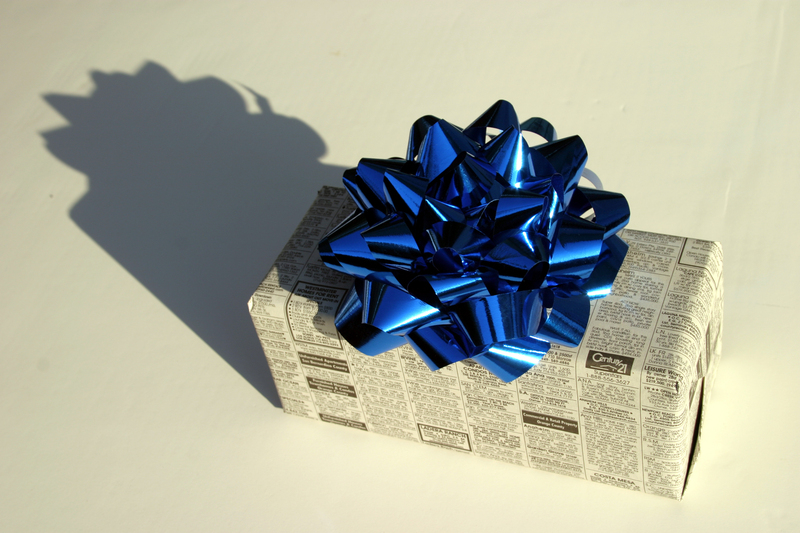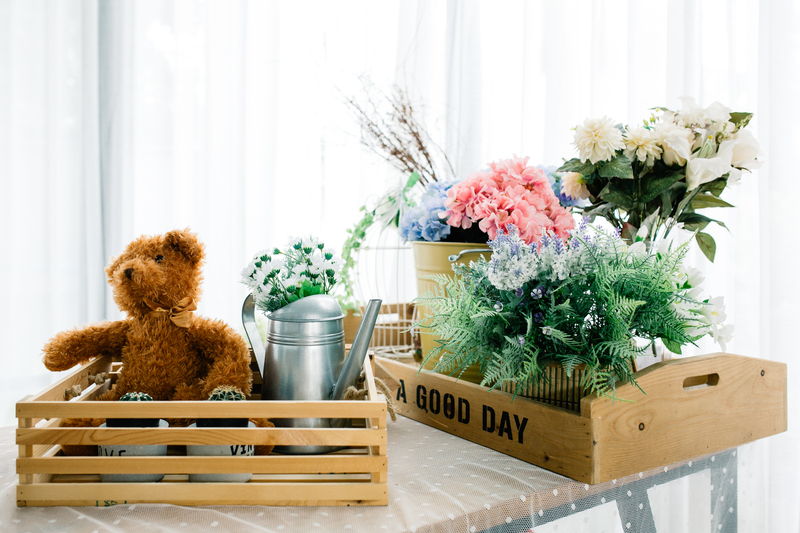Stress Relief: Discover the Healing Powers of De-cluttering
Are you feeling overwhelmed by daily stress and seeking a way to regain balance in your life? Stress relief can often seem elusive in today's fast-paced world, but a transformative solution may be closer than you think--right within your home! Welcome to the healing power of de-cluttering. An organized environment doesn't just look appealing--it can have profound effects on your mental and emotional well-being. In this comprehensive guide, we'll uncover why letting go of clutter is an essential tool for relaxation, how to embark on your de-cluttering journey, and actionable strategies to integrate this powerful stress-busting habit into your everyday life.

Understanding the Link Between Clutter and Stress
Clutter isn't just a physical nuisance--it impacts your mind, mood, and health. When our living or working spaces become overwhelmed with unused items, unfinished projects, or simply too much "stuff," it creates a constant, low-level stressor. The eyes can't rest. The mind can't focus. Here's why experts believe de-cluttering for stress relief is a powerful healing practice:
- Visual Overstimulation: Clutter bombards our senses, making it hard to focus and process information.
- Increase in Cortisol: Studies show women who describe their homes as "cluttered" experience higher cortisol (stress hormone) levels.
- Guilt and Shame: Living in disorganization can lead to negative feelings about oneself, increasing stress.
- Decreased Productivity: Clutter makes finding things difficult, wasting time and raising frustration levels.
De-cluttering is more than a cleaning task. It's an act of self-care with lasting benefits for your stress levels, productivity, and happiness.
De-cluttering: More Than Just Cleaning
Often, people use the terms "de-cluttering" and "cleaning" interchangeably, but they are distinct activities. Cleaning involves removing dirt and tidying surfaces, while de-cluttering is about making intentional choices about what belongs in your life and what no longer serves you. To maximize stress relief benefits from de-cluttering, take a mindful, purposeful approach that connects your environment to your emotional health.
The Psychological Benefits of De-cluttering
- Reduces Anxiety: Fewer distractions mean a calmer space and mind.
- Boosts Focus and Creativity: An organized environment leads to clearer thinking and more creative problem-solving.
- Promotes Mindful Living: Paring down items encourages living in the moment rather than being weighed down by the past or future.
- Improves Sleep: A tidy, peaceful bedroom sets the stage for restful sleep and stress control.
How to Start De-cluttering for Stress Relief
Ready to experience the healing power of de-cluttering? While it may feel daunting at first, breaking it into manageable steps makes the process rewarding--and even enjoyable. Here's a practical, step-by-step approach to reclaiming your space and peace of mind.
Step 1: Set Your Intention
Before you even pick up a single item, get clear on your purpose. Ask yourself:
- How does clutter affect my mood and stress levels?
- What do I want to feel when I enter my home?
- Are there areas that bother me most?
Write down your motivation for de-cluttering for peace and relaxation. This will help you stay focused when decision fatigue strikes.
Step 2: Tackle One Area at a Time
Don't try to overhaul your whole house in a week! Identify high-impact areas that affect your stress level most, such as:
- The Entryway: Sets the tone as you come home.
- Your Bedroom: Essential for restful sleep and relaxation.
- The Kitchen: Nourishes both body and mind.
Start with just one drawer, shelf, or surface. Finish it before moving on. This builds momentum and keeps overwhelm at bay.
Step 3: Use the Four-Box Method
As you go through your space, use the classic de-cluttering technique:
- Keep: Items you use, need, or love.
- Donate: Things in good shape that could help someone else.
- Recycle/Trash: Broken, expired, or unusable items.
- Maybe: For items you're unsure about--revisit later.
Tip: Aim to let go of anything that doesn't serve a clear, positive purpose in your life. Less truly is more when it comes to stress-relief through de-cluttering.
Step 4: Organize What Remains
There's immense peace in order. Develop systems that make it easy to put things away:
- Use baskets, bins or drawer dividers for small items.
- Label storage to take the guesswork out of tidying up.
- Assign a "home" for every possession--if it doesn't have one, it may not need to stay.
When your environment is streamlined and harmonious, every day starts with less stress and more energy.
Balancing Emotional Attachments and Stress Relief
Letting go can be the hardest part of de-cluttering. We often attach memories, guilt, or self-worth to objects. As you seek stress-reduction through de-cluttering, practice these mindset shifts:
- Focus on Joy: Keep items because they add to your life, not out of obligation or guilt.
- Honor the Past: Take photos of sentimental items and let the physical object go.
- Practice Gratitude: Thank items for their use before releasing them.
- Visualize Your Peaceful Space: Imagine the calm and happiness you're inviting in by letting go.
How De-cluttering Impacts Overall Wellness
1. Physical Health Benefits
De-cluttering doesn't just lighten your mental load--it has tangible wellness benefits:
- Improved air quality: Less dust, mold, and allergens gather in clean spaces.
- Safer home: Reduced tripping hazards and fire risks.
- Encourages healthy habits: Easier to cook, exercise, or relax in an organized environment.
2. Enhanced Social Life
Living in a clutter-free home often leads to:
- Increased comfort when entertaining guests.
- Stronger relationships with family and housemates due to fewer conflicts over mess.
- Heightened feelings of pride and belonging in your space.
3. Greater Sense of Control
Clutter can make you feel powerless and stuck, but an organized environment sends a signal to your brain: "I am in charge." De-cluttering for stress relief instills confidence and motivation that carries over into other areas of life.
Maintaining a Clutter-Free, Stress-Free Life
Once your space is peaceful, you'll want to keep it that way. Here's how to create sustainable habits for ongoing stress-reduction and de-cluttering:
1. Embrace the "One-In, One-Out" Rule
Whenever you bring something new home, let go of a similar item. This prevents clutter from creeping back in and keeps your environment fresh.
2. Schedule Regular Mini De-clutter Sessions
Set aside 10-15 minutes weekly to tidy up spots prone to chaos--mailboxes, junk drawers, or wardrobes. Small, consistent efforts yield long-lasting results and keep stress levels low.
3. Practice Mindful Consumption
Before buying, ask: "Do I really need this? Will it add value to my life, or just become clutter?" Mindful living means choosing quality and intention over quantity.
De-cluttering Tips for Every Area of the Home
Different rooms may require specific strategies for effective stress-removal through de-cluttering. Here's a quick guide:
- Bedroom: Keep only items that soothe, inspire, or support restful sleep. Use closed storage to reduce visual noise.
- Kitchen: Toss duplicate utensils and out-of-date food. Store daily essentials within easy reach.
- Living Room: Use furniture with built-in storage; display only favorite decor items.
- Bathroom: Keep surfaces clear; discard old toiletries and expired medications.
- Workspace: File papers promptly; minimize desktop clutter for better concentration.
Remember, every small area you clear is a gift to your future self--one step closer to ongoing stress relief and harmony.

What Science Says: De-cluttering and Mental Wellness
Research supports the connection between de-cluttering and better stress management:
- A UCLA study found women with clutter-filled homes had higher levels of stress hormones and reported lower overall happiness.
- People who de-cluttered saw improvements in depression, anxiety, and ability to focus--because an ordered environment supports a calm state of mind.
- De-cluttering is a recognized component of cognitive behavioral therapy used to treat hoarding and chronic stress conditions.
Even small steps can create a cascade of positive feelings that boost well-being, productivity, and mental clarity.
Final Thoughts: Unlocking Inner Peace Through De-cluttering
The healing power of de-cluttering for stress relief lies in its ability to transform not just your environment, but your whole outlook. While life's stressors never disappear entirely, your home can become a personal sanctuary--a place that renews, supports, and rejuvenates you each day.
Remember:
- Start small, and celebrate every success.
- Be gentle with yourself as you let go of the unnecessary.
- Praise your progress--every empty shelf or clear surface is a victory for your well-being.
Are you ready to begin your journey? By embracing the life-enhancing habit of de-cluttering, you invite more peace, productivity, and joy into your world--one simple step at a time.
Don't just clean; heal! Experience the profound stress relief that comes from simplifying your space and your mind--and discover a lighter, brighter you.